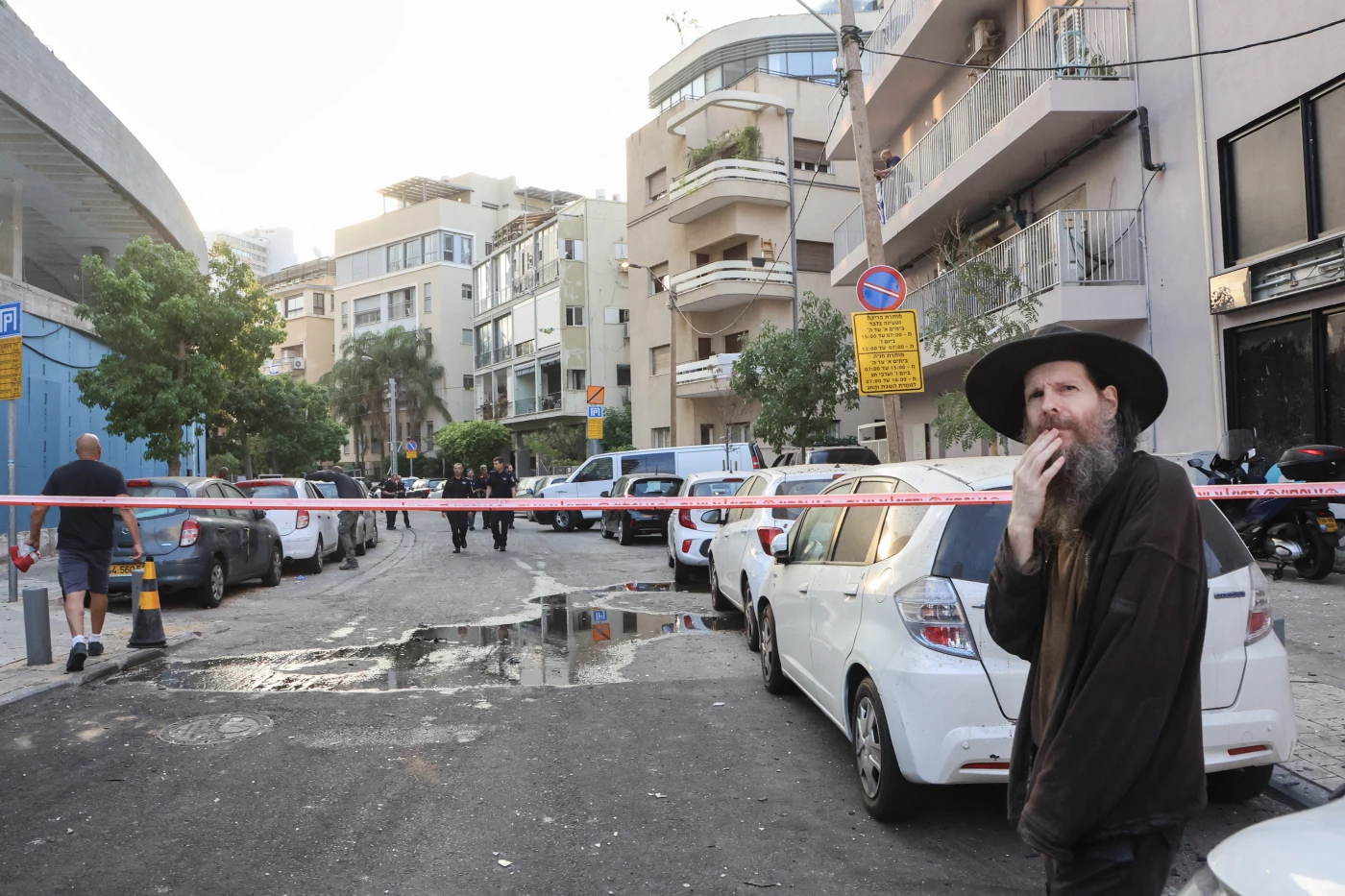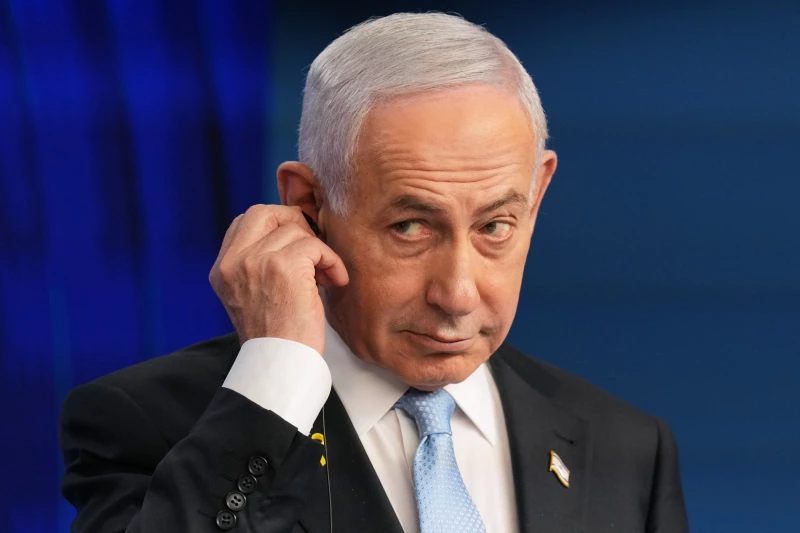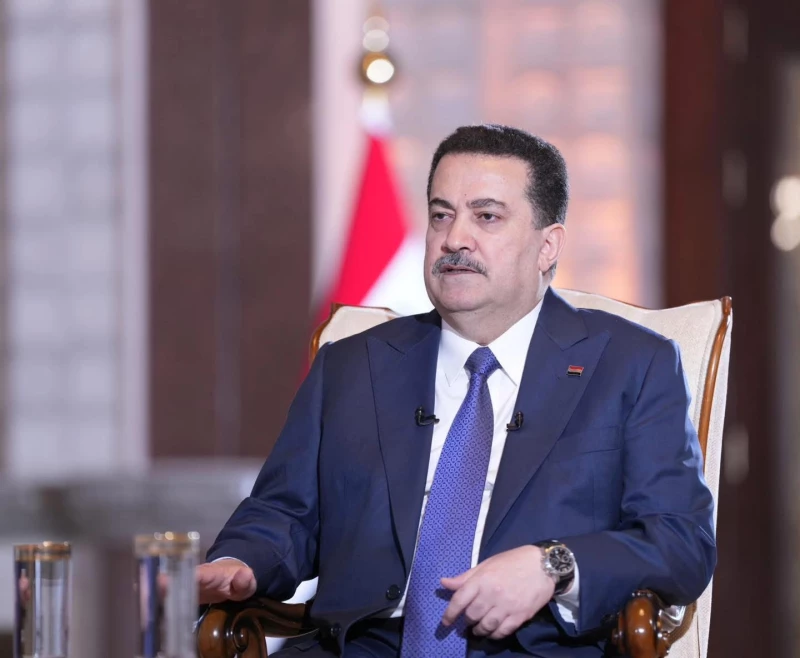A drone claimed by Yemen's Houthi rebels slipped through Israel's vaunted air defence system on Friday to hit a Tel Aviv building near a US embassy annex, killing a civilian.
The Houthis fired at Tel Aviv a "new drone called 'Yafa', which is capable of bypassing the enemy's interception systems," said Yahya Saree, the Iran-backed Yemeni movement's spokesman.
The Houthis have targeted shipping in the Red Sea and Gulf of Aden with numerous drone and missile attacks since November, citing solidarity with Palestinians during the Israel-Hamas war in Gaza.
They have previously claimed attacks on Israeli cities including Ashdod, Haifa and Eilat, but Friday's strike appears to be the first to breach Israel's intricate air defences.
It comes after the rebels threatened an escalation.
An Israeli military official, who spoke on condition of anonymity, said a "very big drone that can travel long distances" was used in the 3:12 am (0012 GMT) attack.
The drone was detected, he said, but due to "human error" the alarm was not raised in time, and it slammed into an apartment building.
Military spokesman Rear Admiral Daniel Hagari said Israel believed the drone used was Iranian-made and upgraded so it could reach Tel Aviv from Yemen -- at least 1,800 kilometres (1,100 miles) away.
It was "likely a Samad-3 model, which we estimate was launched from Yemen and reached Tel Aviv," he said, adding one civilian was killed and others lightly injured. Medical services said four people suffered "relatively minor" injuries.
Israeli Defence Minister Yoav Gallant vowed to avenge the drone attack.
"The security system will settle the score with all who try to harm the state of Israel, or sends terrorism against it, in a decisive and surprising manner," he said in comments released on social media platform X.
'Everything blew out'
In grainy security camera footage, the buzz of what appeared to be the drone was followed by an explosion that shook the building and set off car alarms.
The blast occurred about 100 metres (yards) from a US embassy annex, said an AFP journalist who saw broken windows along the street lined with apartment blocks.
"It woke me up because the vibration of the sound was like a 747 coming in," said Kenneth Davis, an Israeli who was staying in a hotel opposite the struck building.
"And then the explosion... everything blew out in the room, the windows and things from the ceiling, and it was on me, nothing heavy, but lots of pieces of stuff," he told AFPTV.
Hagari said Israel "intercepted another UAV trying to infiltrate from the east" at around the same time as the Tel Aviv attack.
"We are investigating why the UAV was not identified as a threat and intercepted before it struck," he said. "I want to emphasise that (Israel's air) defence is not impenetrable."
In recent weeks, the Islamic Resistance in Iraq, a loose alliance of Iran-backed groups, has claimed drone strikes against targets in Israel, labelling many of them "joint operations" with the Houthis.
The United States and Britain launched a campaign of air strikes in January to deter Houthi attacks on ships.
The Gaza war was triggered by the October 7 attack by Palestinian Hamas militants on southern Israel which resulted in the deaths of 1,195 people, mostly civilians, according to an AFP tally based on Israeli figures.
The militants also seized 251 hostages, 116 of whom are still in Gaza, including 42 the Israeli military says are dead.
Israel's military retaliation to wipe out Hamas has killed at least 38,848 people, also mostly civilians, according to data from the health ministry in Hamas-ruled Gaza, where fighting raged on Friday.
'Moral stain'
Residents said clashes were heard between Palestinian fighters and the Israeli army, with explosions and shelling in the Tal al-Hawa district of Gaza City.
The war has destroyed much of Gaza's housing and other infrastructure, leaving almost all the population displaced, short of food and drinking water.
Many are living in unsanitary conditions. Health authorities in Gaza and Israel said on Thursday that a highly infectious polio virus has been detected in Gaza sewage samples.
The World Health Organization said on Friday however that so far no cases of polio had been discovered in Gaza.
"The humanitarian situation... is a moral stain on us all," said UN Secretary-General Antonio Guterres.
Israeli Prime Minister Benjamin Netanyahu has repeatedly insisted that, despite mounting pressure both at home and from abroad, there would be no let-up in Israel's campaign against Hamas.
Far-right members of his governing coalition oppose a truce deal, including National Security Minister Itamar Ben Gvir who on Thursday said Netanyahu must not make a "surrender" accord with Hamas.
Netanyahu is set to address the US Congress next Wednesday.
Ahead of his trip, Israeli lawmakers passed a symbolic resolution opposing the creation of a Palestinian state -- a move criticised by the United Nations and one that clashes with US ambitions for the region.
Despite the vote, White House National Security Council spokesman John Kirby reiterated "our firm belief in the power and the promise of the two-state solution".



 Facebook
Facebook
 LinkedIn
LinkedIn
 Telegram
Telegram
 X
X


